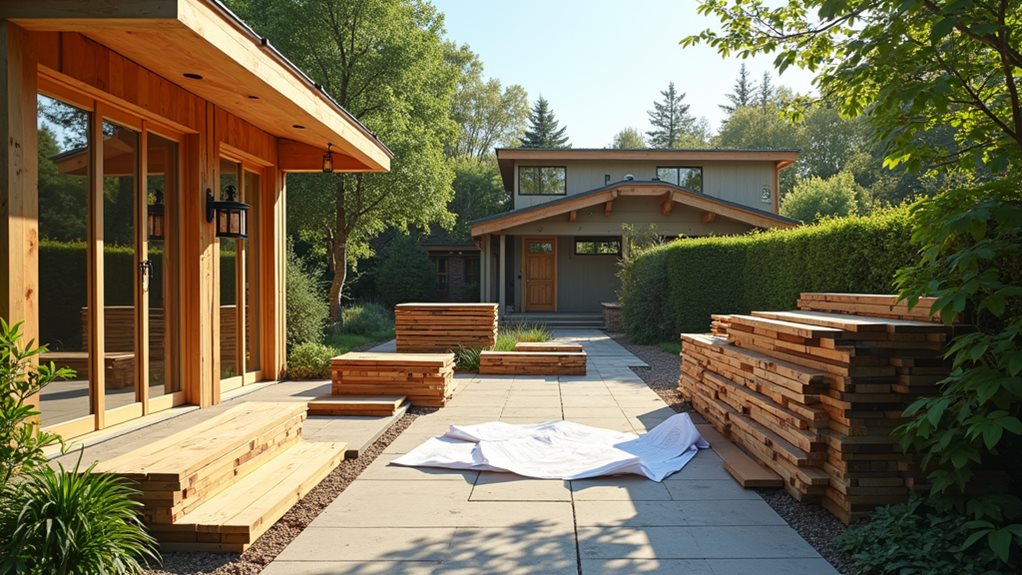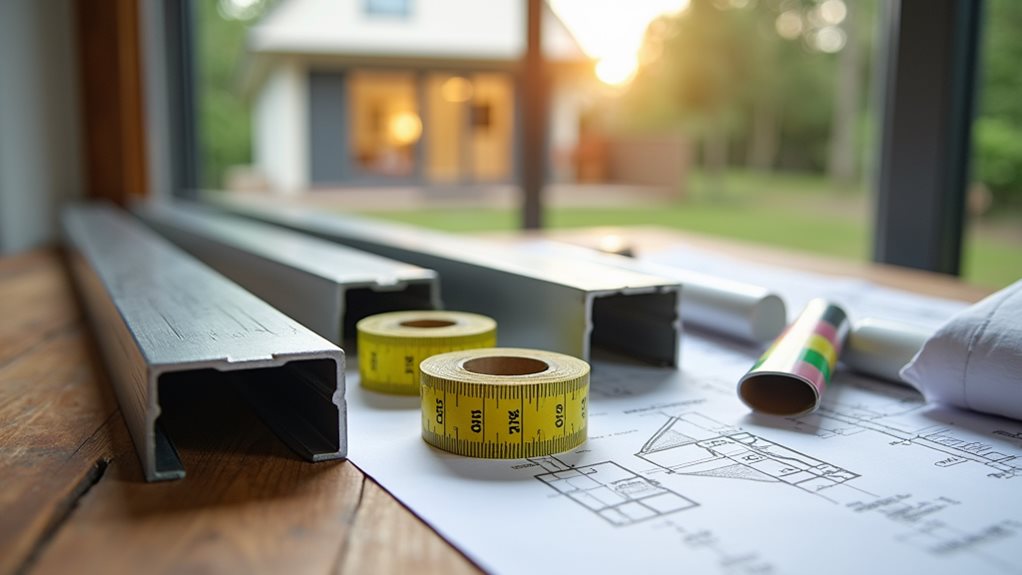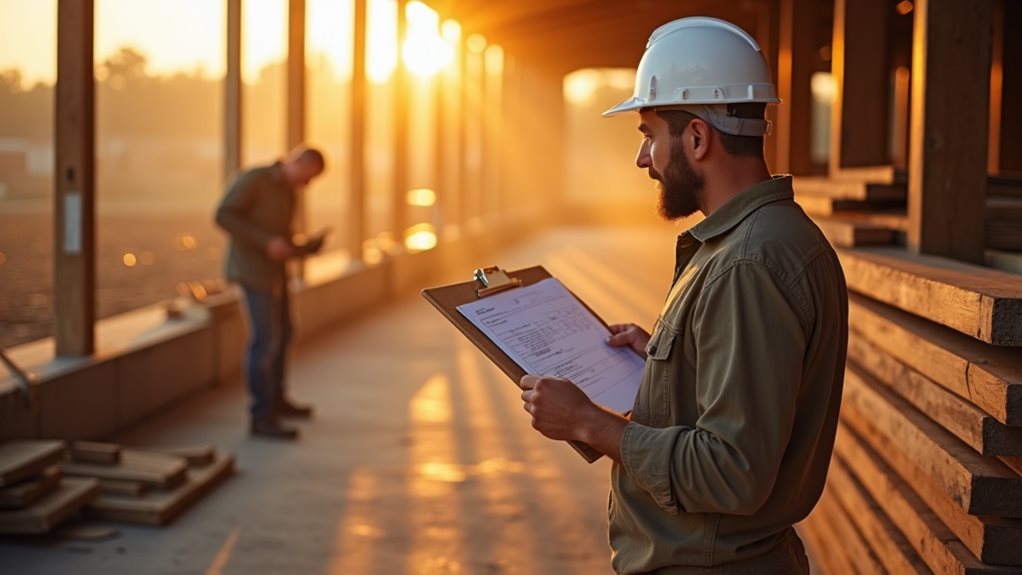Phone:
(701)814-6992
Physical address:
6296 Donnelly Plaza
Ratkeville, Bahamas.

Discover the essential factors influencing home extension costs and learn how to budget effectively for your next project; the journey begins here.
Understanding home extension costs is essential for your project’s success in the UK. Typical expenses range from £950 to £1,900 per square metre, with simple additions costing between £8,550 and £17,100. Your total can vary greatly based on project size, design complexity, and location. Don’t forget about planning permission fees, contractor charges, and material costs, which can typically account for 60% of your budget. It’s wise to get detailed quotes to avoid surprises. With a solid grasp of these factors, you’re better equipped for a successful extension. VAT at 20% should also be factored into your calculations, unless your builder is not VAT-registered. Remember that costs in London and the Southeast tend to be higher than the national average, while prices in the North and Midlands may be lower.

When considering a home extension, you’ll often find that understanding the costs involved is essential. The right extension can enhance your home value and provide a more comfortable living space for you and your family.
Typical costs can vary widely, falling within the average range of $125 to $250 per square foot for general additions. For example, adding a simple 10×10 room can set you back between $12,500 to $25,000. But think about what that investment means for your home. Not only does it support modern design trends, making your space more appealing, but it also adds functionality. Larger spaces increase material and labor costs, adding even more value to your investment. Working with local builders ensures you receive tailored solutions that respect your budget while enhancing your home’s potential.
Breaking down specific costs, you’ll see that certain extensions like attic conversions and garage transformations offer budget-friendly options, starting as low as $50 per square foot.
Of course, it’s important to factor in additional expenses like permits, labor, and finishes, which can greatly impact your final budget. Remember, you might minimize costs by being flexible with design choices or opting for a smaller project.
This way, you’re not just expanding your home; you’re enriching your lives within it. Your home isn’t just a space; it’s a place where memories are made and cherished.
Understanding the factors influencing extension pricing can greatly impact your project’s budget. First, consider the project size and scope—larger expansions require more building materials and labor, which shoots up costs. Additionally, average home addition costs typically range from about $45,000 to $250,000, making it essential to establish a realistic budget from the start.
Design trends play a major role here too; intricate designs or high-end materials can push prices above $500 per square foot. Next, think about your geographic location. Prices fluctuate dramatically based on regional variations, with urban areas often charging more due to demand. You might find that local market conditions can greatly affect your cost estimation. If you’re in an area with stringent regulations, like the Bay Area, prepare for even higher expenses.
Quality matters as well. Selecting high-end materials, whether it’s luxury tiles or custom siding, will enhance your space, but at a cost. Finally, don’t neglect labor and permits; local economies impact labor pricing, and the need for permits can add to your expenses.

In recent years, homeowners have increasingly turned to extensions as a way to enhance their living spaces and add value to their properties. Depending on your needs, extensions vary widely in costs, so it’s crucial to get a clear picture.
Single-story extensions typically range from $25,000 to $75,000, with costs per square foot hovering between $80 and $200. These additions often offer single-story benefits, providing a seamless connection with your existing home while keeping expenses in check. A 10×10 foot addition can set you back around $8,000 to $21,000, perfect for small enhancements.
On the other hand, two-story extensions can be quite an investment, with prices potentially exceeding $100,000, and costs per square foot running from $100 to $300. The two-story advantages include increased living space and the flexibility to create unique areas without expanding your home’s footprint.
However, be prepared for higher costs due to the complex requirements of structural reinforcements and upgraded plumbing.
Whatever option you choose, understanding these average costs can help you make informed decisions tailored to your lifestyle and budget.
Extensions can greatly enhance your home, but before you start planning, you need to take into account the planning permission process and associated costs.
First, understand that fees for planning permission vary by region in the UK. For instance, in England, a householder application costs £258, while in Wales, it’s £230. These costs can add up, especially if you’re considering new dwellings.
Before you engage in the application process, seeking pre-application advice can be invaluable. This guidance helps you gauge your project’s feasibility and can range from £50 to £400, depending on your local council’s rates.
Remember, understanding the timeline is also essential—most applications take about eight weeks for assessment, and you’ll need to start development within three years to keep your permission valid.
Lastly, consider other costs like lawful development certificates and appeal expenses, which might also factor into your budget.

When starting a home extension project, it’s vital to factor in both contractor fees and material costs, as they greatly impact your budget. Typically, contractors charge between 10% to 20% of the total project cost, and if you opt for a cost-plus model, expect fees determined by labor and material expenses.
Some contractors charge hourly rates, which can range from $50 to $150, and larger projects might push fees up to 25%. Don’t forget about additional charges like permits and subcontractor hires—these can add up quickly.
Material costs generally account for about 60% of your total expenses. You’ll want detailed quotes breaking down the specific costs of materials—including quantities—so you know exactly what you’re paying for.
Keep an eye on material sourcing, as prices can fluctuate based on market conditions. Understanding contractor responsibilities is important here; they should provide thorough quotes that encompass all aspects of the project.
In conclusion, understanding home extension costs is essential for staying within budget and achieving your dream space. Did you know that homeowners often recoup about 70% of their extension investment when selling? By considering factors like planning permissions and contractor fees, you can make informed decisions that balance your needs with your budget. With a clear grasp of what influences these costs, you’re better equipped to create a space that suits your lifestyle without breaking the bank.